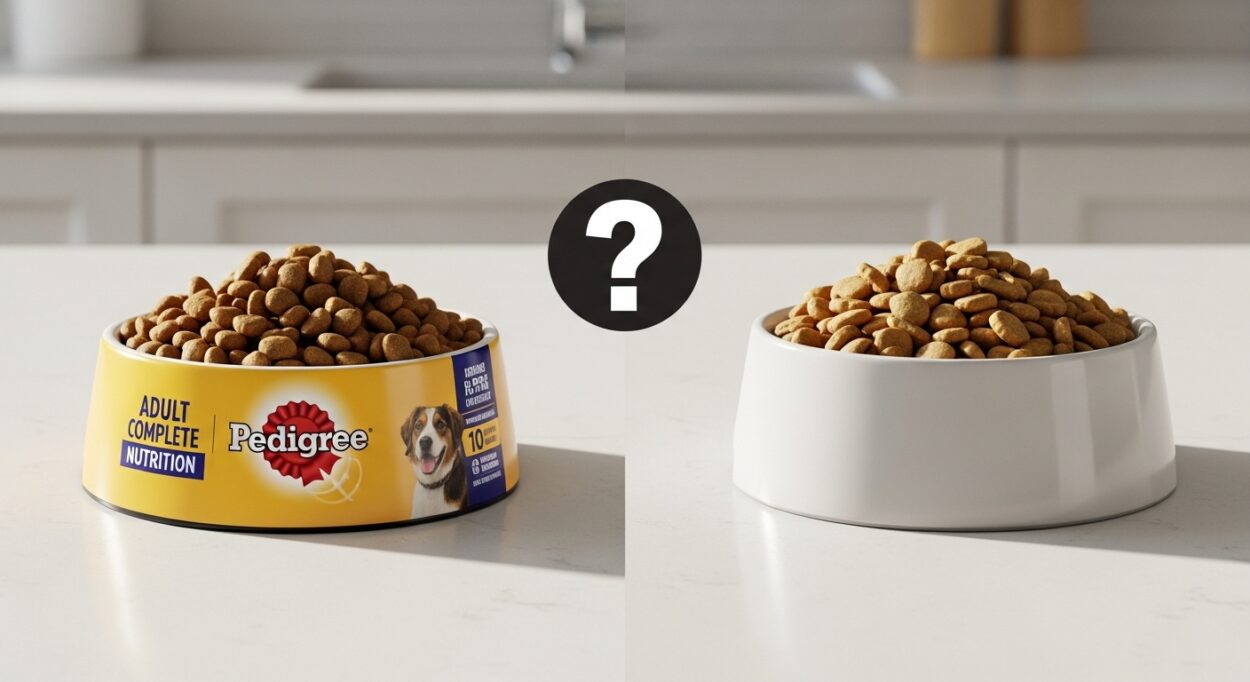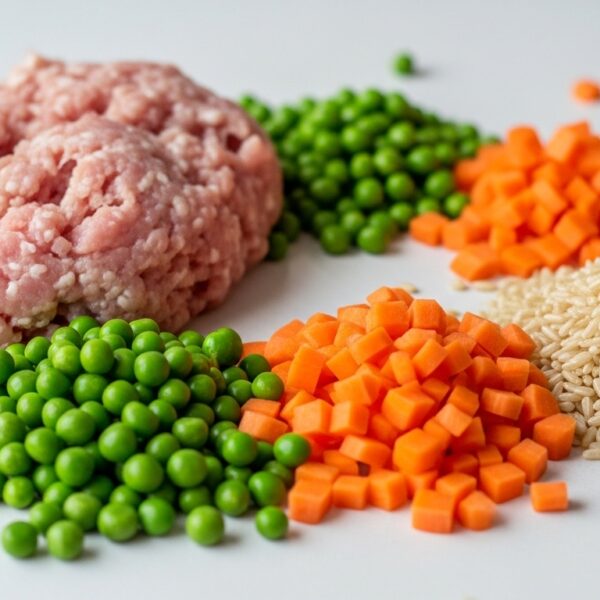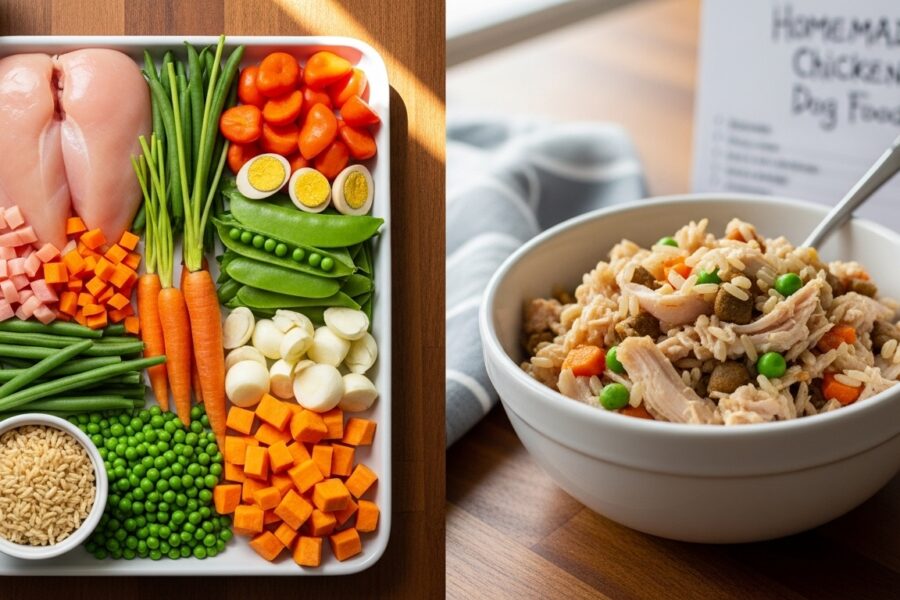Table of Contents
Introduction
Walk down any pet food aisle in America, and you’ll see Pedigree bags everywhere. It’s easily one of the most recognizable dog food brands in the world—affordable, convenient, and widely available. But with all the marketing, many pet owners wonder: Is Pedigree a good dog food, or should you feed your furry friend something else? Let’s look past the commercials and break down what’s really inside the bag, what experts say, and which dogs (if any) Pedigree is best suited for.
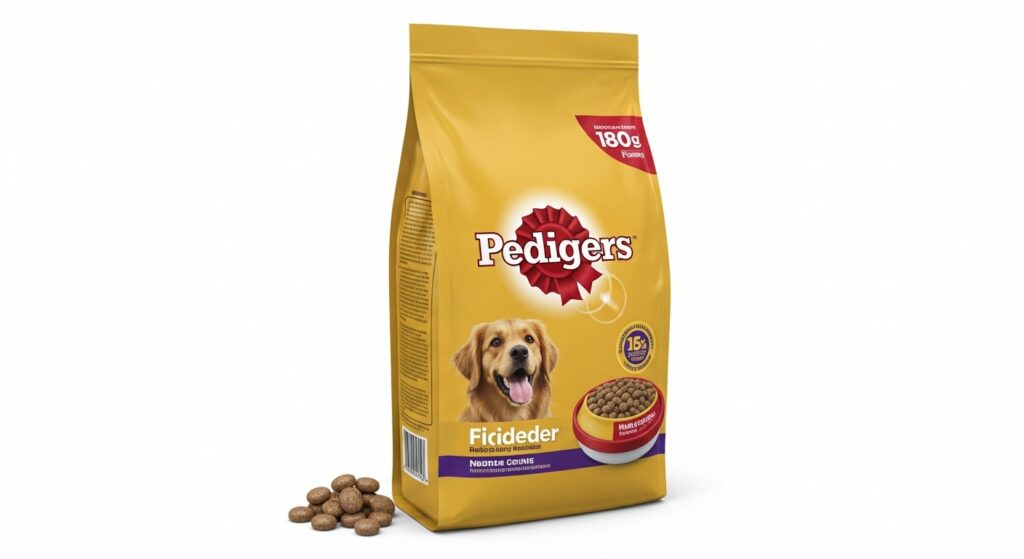
What Is Pedigree Dog Food?
Pedigree, owned by Mars, Inc., has been making dog food for decades. They offer a wide variety of products for all dog sizes, ages, and special needs—including dry kibble, wet food, and treats. Pedigree is most famous for its low prices and easy-to-find products in supermarkets and big box stores like Walmart and Target.
But what goes into each bowl? That’s where things get interesting.
Key Ingredients in Pedigree Dog Food
Here’s what you’ll typically find in the top-selling Pedigree varieties (like Adult Complete Nutrition):
- Ground Whole Grain Corn: Often the first or second ingredient; this means it’s the main bulk of the food.
- Meat and Bone Meal: Protein source, but considered a lower-quality ingredient compared to named meats (like “chicken” or “beef”).
- Corn Gluten Meal: Another plant-based protein, helps hold kibble together.
- Animal Fat: Added for calories and taste; often “preserved with BHA/BHT,” which are artificial preservatives.
- By-products and Other Fillers: You might see “meat by-products” instead of real meat. These are less expensive and lower in nutritional value.
- Added Vitamins and Minerals: Includes supplements for basic nutrition.
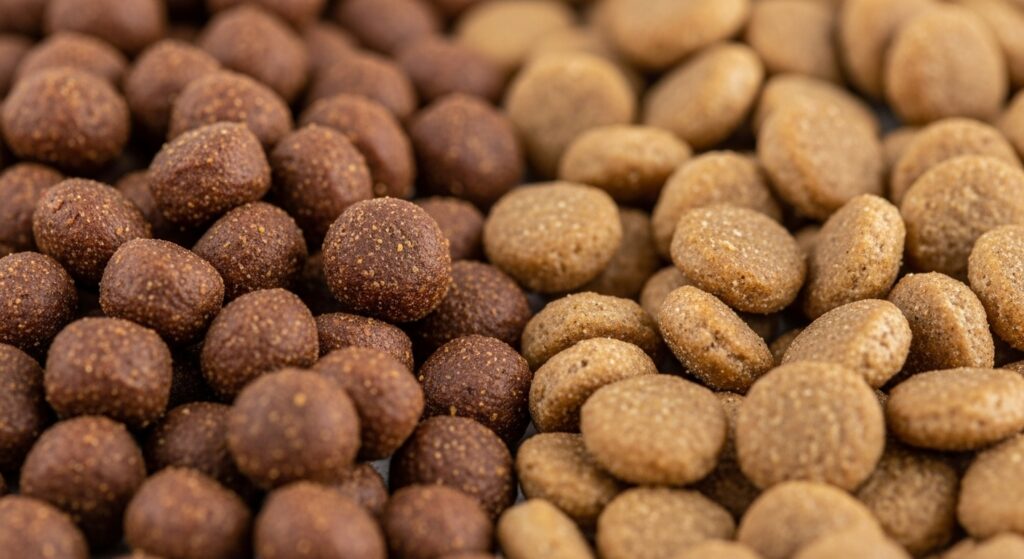
The Pros & Cons of Pedigree Dog Food
Pros
- Affordable: One of the least expensive dog food options (great for large households or shelters).
- Availability: Found just about everywhere.
- Basic Nutrition: Meets minimum AAFCO (Association of American Feed Control Officials) requirements for nutrients in dog food.
- Wide Product Range: Available for puppies, adults, seniors, and special diets (like “small breed” formulas).
Cons
- Low-Quality Protein Sources: Animal by-products and meat meals can vary in quality.
- Heavy on Fillers: Corn and other grains as main ingredients (not ideal for all dogs).
- Artificial Colors & Preservatives: Some recipes include dyes and chemical preservatives linked to allergies and sensitivities.
- Mixed Reviews on Taste: Some picky eaters turn down Pedigree; others love it!
- Not Ideal for Sensitive Dogs: Dogs with allergies or food sensitivities may react poorly.

What Do Vets and Experts Say about Pedigree Dog Food?
Most veterinarians agree:Pedigree can meet the basic nutritional needs of many healthy dogs, but is not considered a top-tier, premium food. The heavy use of by-products, fillers, and artificial additives means it’s not the best choice for dogs with health concerns, allergies, or picky appetites.
- If you’re on a strict budget and your dog has a healthy digestive system, Pedigree kibble is acceptable short-term.
- For dogs with allergies, skin trouble, sensitive stomachs, or long-term health goals, experts recommend upgrading to a premium food with more real meat and fewer fillers.

Which Dogs Might Pedigree Be Suitable For?
- Healthy, adult dogs with no special dietary needs
- Multi-dog households on a tight budget
- Shelter dogs or short-term foster situations
- Owners needing a convenient, affordable food option
Who should avoid it?
- Puppies (choose a premium puppy food for best growth!)
- Dogs with allergies or sensitive stomachs
- Senior dogs or those with chronic health problems
- Owners who want top-quality, natural nutrition
Conclusion: Is Pedigree a Good Dog Food?
Pedigree will keep most healthy dogs alive and active, but it’s not the “best” dog food on shelves. It does the job for many pet parents on a budget, but if you want the cleanest, highest-quality nutrition with whole meats and zero artificial additives, you’ll want to look elsewhere. Always pay attention to your dog’s individual needs—every pup is different!
If you’re making a dog food switch, move slowly and consult your vet to avoid tummy upsets.
FAQs: Pedigree Dog Food
1. Is Pedigree safe for dogs?Yes, it’s formulated to meet minimum AAFCO nutrition standards and is safe for most dogs. Always check with your vet for your individual dog’s needs.
2. Does Pedigree use real meat?Pedigree uses “meat and bone meal” and animal by-products, not high-quality real muscle meat as the main ingredient.
3. Why is Pedigree so cheap?They use more plant-based fillers (corn, wheat) and animal by-products, which cost less than premium, whole ingredients.
4. Can Pedigree cause allergies?Like many low-cost kibble brands, Pedigree contains common allergens such as corn, wheat, and artificial additives—some sensitive dogs may react.
5. What are good alternatives to Pedigree?Consider options like Blue Buffalo, Wellness, Nutro, or Purina Pro Plan—these brands use more high-quality meats and fewer fillers.
6. Should I feed Pedigree to my puppy?It’s better to choose a premium puppy formula with higher-quality protein and DHA for best growth and brain development.
7. Is Pedigree suitable for dogs with health conditions?Not usually—dogs with allergies, digestive issues, or special needs do better with a more natural, specialized diet.

